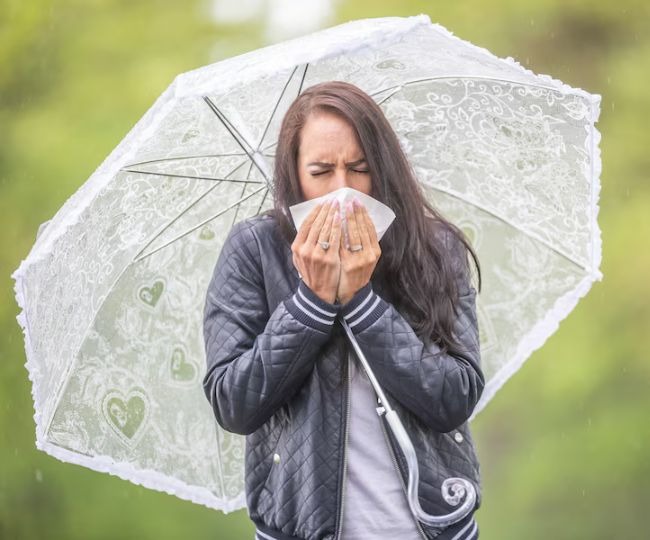
New Delhi. Monsoon Diseases: After the scorching heat from March to June, the month of July welcomes the monsoon. This seventh month of the year definitely gives some relief from the scorching heat, but during these rainy days one needs to be most careful about health. If you also do not want to fall ill again and again in this season, then this article can prove to be very helpful for you. Let us tell you how you can protect yourself from the danger of bacteria and viruses caused due to increased humidity in the atmosphere.
Why does the risk of diseases increase during monsoon?
In the rainy season, bacteria and viruses start spreading very fast through the respiratory tract. Due to the humidity in the weather, the risk of bacterial growth is the highest these days. These days the body's ability to fight diseases also decreases. In such a situation, the direct and rapid effect of negligence in eating is seen on health. To avoid the problem of cough-cold, vomiting and cold-fever, one has to take a lot of care of health in this season. Mosquitoes also spread rapidly in the monsoon season, because these days due to rain they get an environment to flourish, which emerges as a big threat to your life. Let us know about the diseases spreading in this season.
The risk of these diseases increases
During the rainy season, the risk of dengue fever , chikungunya, viral flu, infection, allergy, gastroenteritis, typhoid, hepatitis A and E is very high. Let us tell you, most of these diseases arise due to the breeding of mosquitoes.
How to take care of your health in this season?
It is very important to take care of health during monsoon or rainy season. For this, first of all, wear full-sleeved clothes, which will protect you from diseases like dengue, malaria and chikungunya spread by mosquitoes. Apart from this, special care of diet is also needed to boost immunity in this season. In such a situation, you should try your best to give full place to nutrients in food. For this, apart from consuming seasonal fruits and vegetables, you can also include some superfoods in the diet.
Also, it is very important to avoid dehydration and diarrhea in this season . Due to rain and cold weather, you may feel less thirsty, but take care of adequate amount of water in the body. Apart from this, avoid eating outside and do not consume home-made food after it becomes stale. Also, wash hands frequently and take special care of personal hygiene.
--Advertisement--

 Priya
Priya Share
Share



